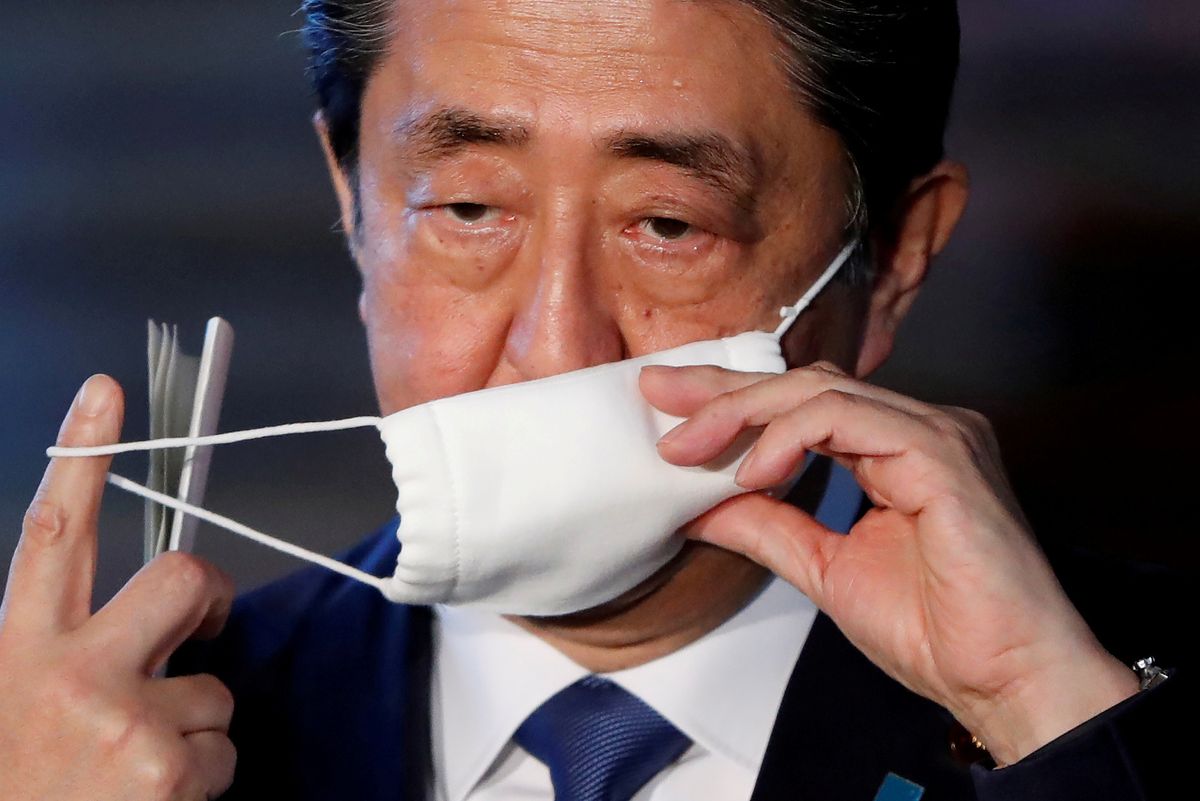How sick is Shinzo Abe? On the day that he became the longest-serving prime minister in Japan's history, Shinzo Abe went to the hospital. His visit on Monday to the Keio University medical center was his second in little more than a week, and while Abe says it was just a follow-up to go over earlier tests, concerns about his health and political future are now swirling in Japan. Abe is known to have a chronic intestinal condition called ulcerative colitis — back in 2007 the disease flared up so badly that it forced him to quit after a year in office. He was elected again in 2012 and has stayed in power ever since. But recently, his aides say, Abe has become badly fatigued as the Japanese government struggles to manage the impact of the coronavirus pandemic. The economy has just suffered its worst quarterly contraction on record, and Abe's approval ratings have been sinking for months. His term is set to end next October, but if the leader of the world's third largest economy can't make it that long, his deputy would take over as caretaker, setting off a furious succession struggle within the ruling Liberal Democratic Party.
Mozambique vs ISIS: The Mozambican army is preparing a major assault to reclaim a strategic port in northern Cabo Delgado province taken over two weeks ago by fighters affiliated with the Islamic State, which for the first time is gaining a foothold in Southern Africa. The troops — assisted by foreign mercenaries from a South African private military contractor — aim to wrest control of the port away from the rebels, partly to keep international investment flowing to major offshore liquified natural gas projects that Mozambique desperately needs revenues from to prop up its weak economy. The wider story is whether ISIS will capitalize on its unexpected success in Cabo Delgado to target other countries in the region. The list would include South Africa, which the jihadists have already threatened to attack if Pretoria supports Mozambique's efforts to eject them from Cabo Delgado. Over 1,500 people have died so far in clashes between Mozambican troops and the rebels since the latter first tried to seize the port in 2017.
Cool it, Greeks and Turks: German Foreign Minister Heiko Maas on Tuesday called on Greece and Turkey to de-escalate their dispute over offshore hydrocarbon rights in the Eastern Mediterranean Sea, as both countries hold separate naval drills in the contested region off Cyprus. The latest episode in this saga started when Turkey over the weekend deployed a maritime research vessel in waters claimed by Athens. Since then, both sides have engaged in a back-and-forth of fiery rhetoric that has made many fear that these two historically bitter Mediterranean rivals — which have long quarreled over ethnically divided Cyprus and EU-bound refugees, and more recently turning Istanbul's Hagia Sophia into a mosque — may now be on the brink of war. The Greeks have threatened to pursue EU sanctions against the Turks if Ankara refuses to halt its plans to explore for oil and gas in disputed waters, while Turkey insists the area is part of its own continental shelf. We are watching to see if Germany succeeds in the diplomatic effort to ease tensions, and whether France (another Mediterranean player) will weigh in, probably to support fellow EU members Cyprus and Greece.

















